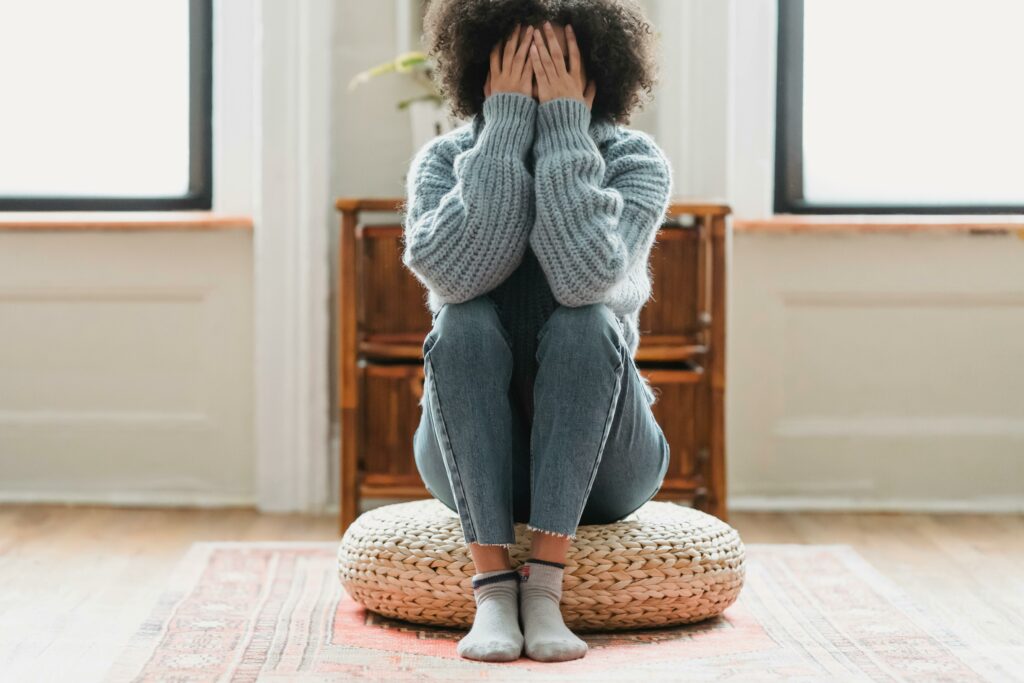Content warning: this story contains a discussion of self-harm and suicide.
During the pandemic, the government announced that it would be subsidising 20 psychology sessions per calendar year. And those extra sessions couldn’t have come at a better time: emergency departments were seeing increased demand, and young people presenting because of self-harm.
But a short 24 months after they came into effect, the sessions were slashed in half.
From January 1 2023 the number of psychology sessions covered by Medicare were reduced to ten per year, effectively halving the number of subsidised sessions available for individuals, reverting back to the pre-COVID program.
But for many Australians under 30 with mental health concerns – one in seven, according to government statistics – the increase of Medicare-subsidised psychology sessions from 10 to 20 during the pandemic was life-changing.
“I needed those fortnightly sessions. Otherwise, I feel like I probably wouldn’t be here if I’m going to be candid,” 26-year-old student Emma told triple j Hack.
“Twenty sessions was amazing. I was able to see my psych quite frequently – at some stage, frequently, and then another stage, we were doing fortnightly,” said another student, Pek, 26.
A review of the scheme published in December 2022 noted the key reason people don’t see a psychologist is the same reason they do: money.
“Barriers to accessing the program were mostly financial,” the review stated.
“Enablers were mostly financial; the fact that services were subsidised was seen as a significant benefit.”
Now, a year later, the impact has been severe, but not surprising: the cost of living crisis has forced Australians to compromise and even forego critical mental health care. There’s been a 40 per cent increase in people from the most disadvantaged socio-economic group delaying seeing a psychologist, or not seeing one at all, due to cost, according to a patient survey by the Australian Bureau of Statistics (ABS). Young people – commonly in lower-paid, insecure, or casual work – inevitably fall into that group.
Survey data released by the ABS in November also showed the number of people who delayed seeing a health professional for mental health reasons due to the cost had increased to 19.3% in 2022-23 from 16.7% in 2021-22.
Recommendations ignored
The president of the Australian Clinical Psychology Association, Caroline Hunt, said the government should have offered an alternative to patients needing prolonged treatment before making the change.
“I think to cut off before having those things in place has actually been problematic for many people with quite complex mental health disorders,” Professor Hunt said.
Clinical Psychologist Elizabeth Seely-Wait, who runs two clinics in northern and western Sydney, said the change had a profound impact on many of her clients.
“Our clients have to space out their sessions such that they have many weeks in between … it’s prolonged their therapy,” she said.
Shadow Health Minister Anne Ruston said it affected 240,000 Australians who were accessing the additional 10 sessions.
“In any other medical situation, half delivering a treatment plan as prescribed by your medical practitioner would be completely unacceptable,” Senator Ruston said.
What does the evidence say about number of sessions?
As per The Conversation, Research shows between 13 and 18 sessions are required for 50% of people to reliably improve in psychological therapy.
Research also shows a dose-response relationship for psychological therapy, meaning the number of people who respond to treatment will increase when higher numbers of sessions are provided.
Findings from everyday practice show optimal doses for effective treatment range from four to 26 sessions or more. Higher numbers of sessions may be needed when mental illness is more complicated. This might be because people are experiencing multiple disorders, or where there are more severe symptoms or impacts on their life at the start of treatment.
What happens if people don’t get enough treatment?
When people are under-treated, symptoms can remain and continue to adversely impact their psychological and physical health, and quality of life.
These residual symptoms are one of the strongest predictors of relapse back into full-blown illness, including for more common disorders such as major depression and anxiety disorders.
To be effective, some treatments necessitate higher doses or longer care. Some Australians have enough money to pay privately for additional sessions, but for those who rely on bulk billing, a cap of ten sessions will leave them under-treated.
The impact on perinatal women
Australian Association of Psychologists (AAPi) Executive Director Tegan Carrison say 10 sessions is inadequate to support women experiencing perinatal anxiety and depression (PND).
“For anyone with serious/complex problems, research shows that 40 sessions are considered the optimal level of treatment,” Carrison said.
“Our psychologists working closely with perinatal women are reporting that their clients are being forced to stretch out their sessions.”
Emphasising the need for 40 psychology sessions to be accessible to perinatal women, she adds that “these kinds of issues require ongoing psychological care that cannot be properly managed in a short space of time.”
Dr Heather Mattner, an Adelaide perinatal health psychologist who sees women at the extreme end of PND, points out that rebated perinatal psychological support only being accessible via GP is also a problem.
She would rather see a voucher system introduced, which would give all pregnant women up to 20 rebated psychology sessions as a package, for during and following pregnancy.
“This system would enable a woman to go directly to a psychologist rather than going through a GP, saving critical time and money, and anyone with a formal diagnosis could then access an additional 20 extra sessions as required,” Dr Mattner explained.
“Perinatal women waste precious time trying to get an appointment with a GP if they’re struggling in early pregnancy, have mental health challenges during mid to late pregnancy or are distressed postnatally with a baby, or have lost a baby.”
“We have to change what we are doing with perinatal women, because PND rates are not reducing, women and their families continue to suffer and research is not having a dramatic impact – so we must focus on early intervention to make a much-needed difference.”
What is the Better Access Medicare initiative?
In 2006, the federal government introduced the Better Access initiative through Medicare. The Better Access initiative gives Medicare rebates to eligible people, so they can access the mental health services they need.
Support is available from eligible general practitioners (GPs) and other medical practitioners, psychologists, social workers and occupational therapists.
Eligible people can receive up to 10 individual and up to 10 group allied mental health services each year.
Since 1 November 2017, those who live in rural and remote areas (Modified Monash Model areas 4 to 7) have had access to these services via telehealth. Since 30 March 2020, due to the COVID-19 pandemic, everyone can now access telehealth.
How can you get the 10 covered sessions?
To gain access to your 10 sessions, you will need to reach out to your GP to obtain a mental health care plan, which will allow you to receive rebates for psychological therapy via a referral.
—
If you, or someone you know, is struggling with their mental health, see a medical professional and reach out to a support hotline:
Lifeline Crisis Support – 13 11 14. Online crisis chat – www.lifeline.org.au/Get-Help/Online-Services/crisis-chat (Online crisis chat: 7pm-12am/7 days AEST)
Suicide Call Back Service – 1300 659 467 wwwsuicidecallbackservice.org.au (Phone and online: 24 hours). Phone and online counselling for people at risk of suicide or those bereaved by suicide. Registration required for online counselling.
Beyond Blue Support Service – 1300 224 636 (24 hrs), https://www.beyondblue.org.au/get-support/get-immediate-support (Online counselling: 3pm-12am/7 days AEST). Telephone, online and email counselling for people going through a tough time.
Kids Helpline – 1800 551 800 (24hrs). www.kidshelp.com.au/ (Online crisis support: 7pm-12am/7 days AEST)
Mensline Australia – 1300 789 978, www.mensline.org.au (Phone and online: 24hrs). Advice, therapy and support for men with family and relationship concerns. Telephone with call back, online and video counselling. Registration required for online counselling.
1800RESPECT – 1800 737 732, www.1800respect.org.au/ (Phone and online: 24 hours). Telephone and online counselling service to assist people experiencing sexual, domestic and family violence










